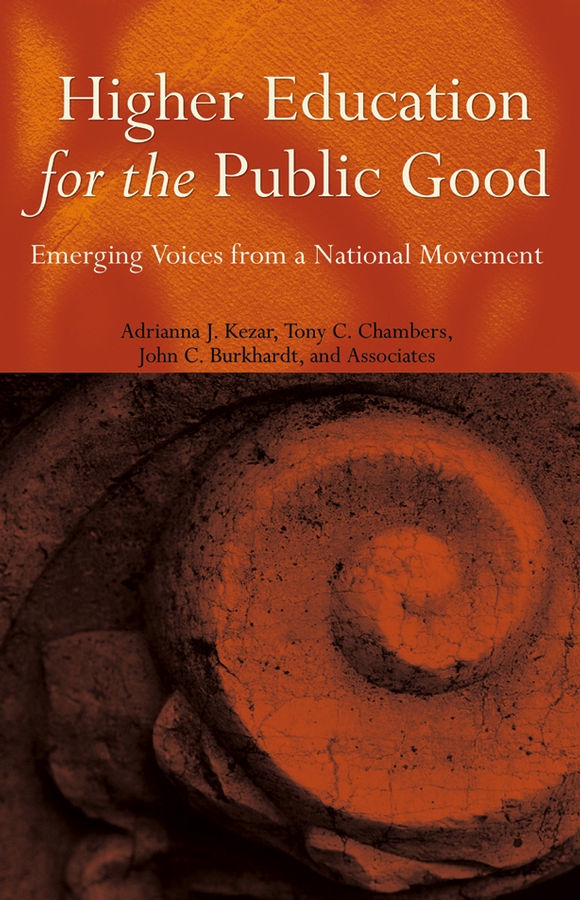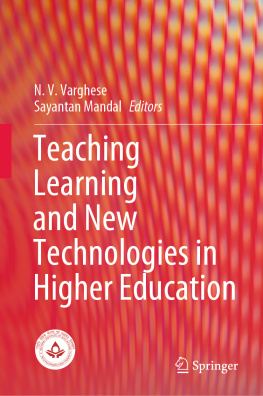
Copyright 2005 by John Wiley & Sons, Inc. All rights reserved.
Published by Jossey-Bass
A Wiley Imprint
989 Market Street, San Francisco, CA 94103-1741 www.josseybass.com
No part of this publication may be reproduced, stored in a retrieval system, or transmitted in any form or by any means, electronic, mechanical, photocopying, recording, scanning, or otherwise, except as permitted under Section 107 or 108 of the 1976 United States Copyright Act, without either the prior written permission of the Publisher, or authorization through payment of the appropriate per-copy fee to the Copyright Clearance Center, Inc., 222 Rosewood Drive, Danvers, MA 01923, 978-750-8400, fax 978-750-4470, or on the web at
Jossey-Bass books and products are available through most bookstores. To contact Jossey-Bass directly call our Customer Care Department within the U.S. at 800-956-7739, outside the U.S. at 317-572-3986 or fax 317-572-4002.
Jossey-Bass also publishes its books in a variety of electronic formats. Some content that appears in print may not be available in electronic books.
Library of Congress Cataloging-in-Publication Data
Higher education for the public good : emerging voices from a national movement / [edited by] Adrianna J. Kezar, Anthony C. Chambers, John Burkhardt.
p. cm.
Includes bibliographical references and index.
ISBN 0-7879-7382-3 (alk. paper)
1. Education, HigherSocial aspectsUnited States. 2. Education, HigherAims and objectivesUnited States. 3. Common good. I. Kezar, Adrianna J. II. Chambers, Anthony C.
III. Burkhardt, John.
LC191.94.H54 2005
378'.015dc22
2005000719
The Jossey-Bass Higher and Adult Education Series
Preface
Adrianna J. Kezar, Tony C. Chambers, John C. Burkhardt
In this book, we examine what we believe to be one of the most significant challenges confronting higher education: a shift, and perhaps loss, within some institutions and sectors in the role higher education plays in serving the public good. The social charter between higher education and the public includes such commitments as developing research to improve society, training leaders for public service, educating citizens to serve the democracy, increasing economic development, and critiquing public policy. In return for these various social commitments, society provides tangible resources, political support, raw materials, and a guiding influence. The idea that higher education exists to serve the public good has been at the heart of the enterprise since its inception in the United States almost four hundred years ago. Although this commitment has shifted over time, evolving as societys understanding of what it needs and how best it can be served by colleges and universities has changed, higher education has always had an obligation to serve society in certain fundamental ways. We believe that these historical commitments have helped create a better society and are essential to a healthy deliberative democracy.
So what is happening? Why is this critical charter being altered, lost, or rejected? We believe that, for the most part, this charter is being lost as public policy and institutional decisions unintentionally focus more on revenue generation and the individual benefits of higher education rather than on its broader social role and benefits. The many subtle and small choices that erode the public commitment have cumulative effects. Some leaders may be altering the charter unintentionally as they try to grapple with declining state funds and state goals that may not prioritize higher education. Perhaps a few even reject this traditional charter and want higher education to be less active and involved in society. For these people, the production of workers is the primary goal of higher education. But, for the most part, we believe many of those in higher education too often make ill-considered choices in trying to respond to an environment in which the values and funding have changed. Most people realize the benefits that higher education brings to society and that the social, economic, and political success of the United States is largely attributable to our higher education, which is considered the premiere system in the world. It is considered premiere not because it educates workers, although this is an important component. It is revered around the world for the comprehensive ways it develops societythrough knowledge production, leadership development, a literate electorate, and cultural and economic development, to name a few. Will the choices made over the last few decades erode this status as a premiere system of higher education?
Purpose and Focus
In recent years, several books concerned about this shift away from the public good have been published (for example, see Bok, 2003, and Kennedy, 1997). These books call attention to the emerging problem and try to make leaders aware of the consequences of recent choices. We wholeheartedly agree with these perspectives. Yet we approach this problem from a different angle.
In this book, we explore ways that higher education leaders can examine and build the role their institutions play in the larger public good. This book draws on the experiences of individuals and groups from all over the country that have been engaged in connecting the work of higher education with the social and civic needs of society. The goal then is to examine how we can build from existing approaches to serving the public good and reconstruct what has been eroded in recent years. This book describes ways that higher education contributes to the public good as well as ways that leaders can enhance their contribution through new policies and practices. In addition to institutional commitments, it also examines ways that the public, institutions, government, foundations, and individuals can be partners with higher education for the public good. These various levels and voices, we believe, constitute a movement that is likely to change higher education and society. In this book, we hope to capture the voices of the emerging movement as well as fuel the movement. Like any movement, backlashes occur, enthusiasm can be lost, or energies redirected and the movement can disintegrate.
In summary, our aim is to provide needed guidance and advice for how individuals and groups throughout the system of higher education can contribute to the public good. How can we move forward, who might be partners, and how can you get involved? We also hope the book is inspiring and creates enthusiasm for those who aspire to promote the civic and social values and commitments of their institutions.
Yet some may be cynical, wondering whether such a commitment is feasible in the current time of financial constraints and individualism, where individual benefits are seen as more important than contributions to the broader society. However, in this time of declining resources, government agencies, state legislatures, and foundations are looking for ways to cut costs and prioritize spending. One of the major criteria used by these organizations is the way that and degree to which institutions contribute to the public good. Commitment to social purposes has been rewarded in the past, and we believe that public dialogue and leadership can ensure that these efforts continue to be rewarded. Others may believe that we are merely in a time in which the overall public good is served by focusing on individualism or that higher educations contribution to the public good has not been eroded at all. We invite you to read the book and to reexamine your beliefs and assumptions. We also invite you into the dialogue and to help us reconsider our beliefs. The goal is to ensure that the public good is served, and open dialogue and exchange of views is critical to ensure this goal.
Next page




